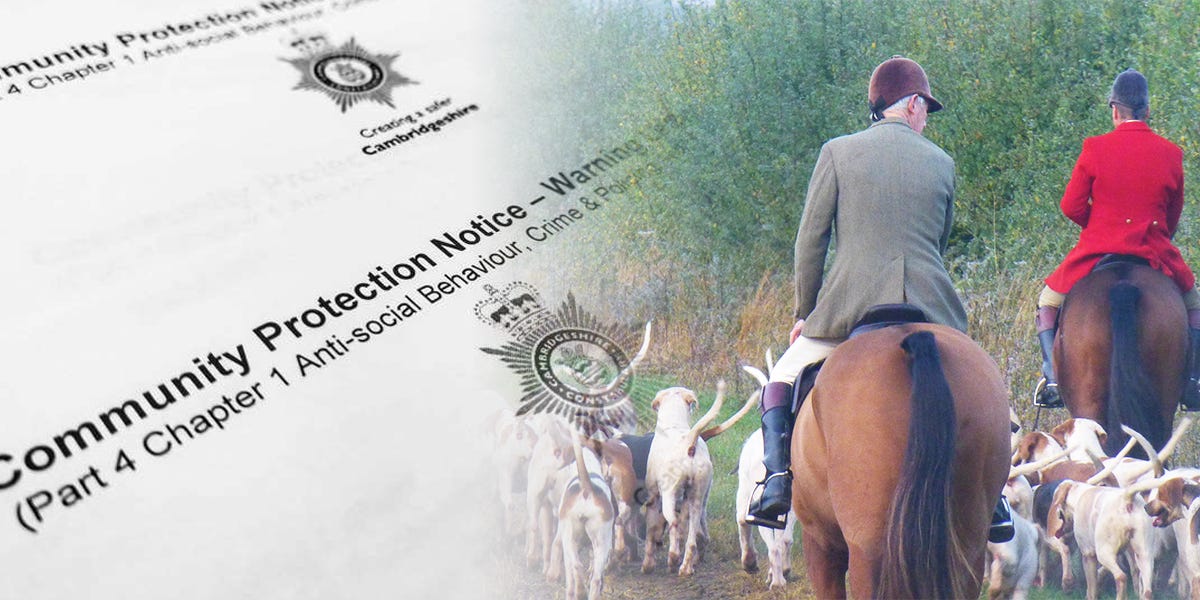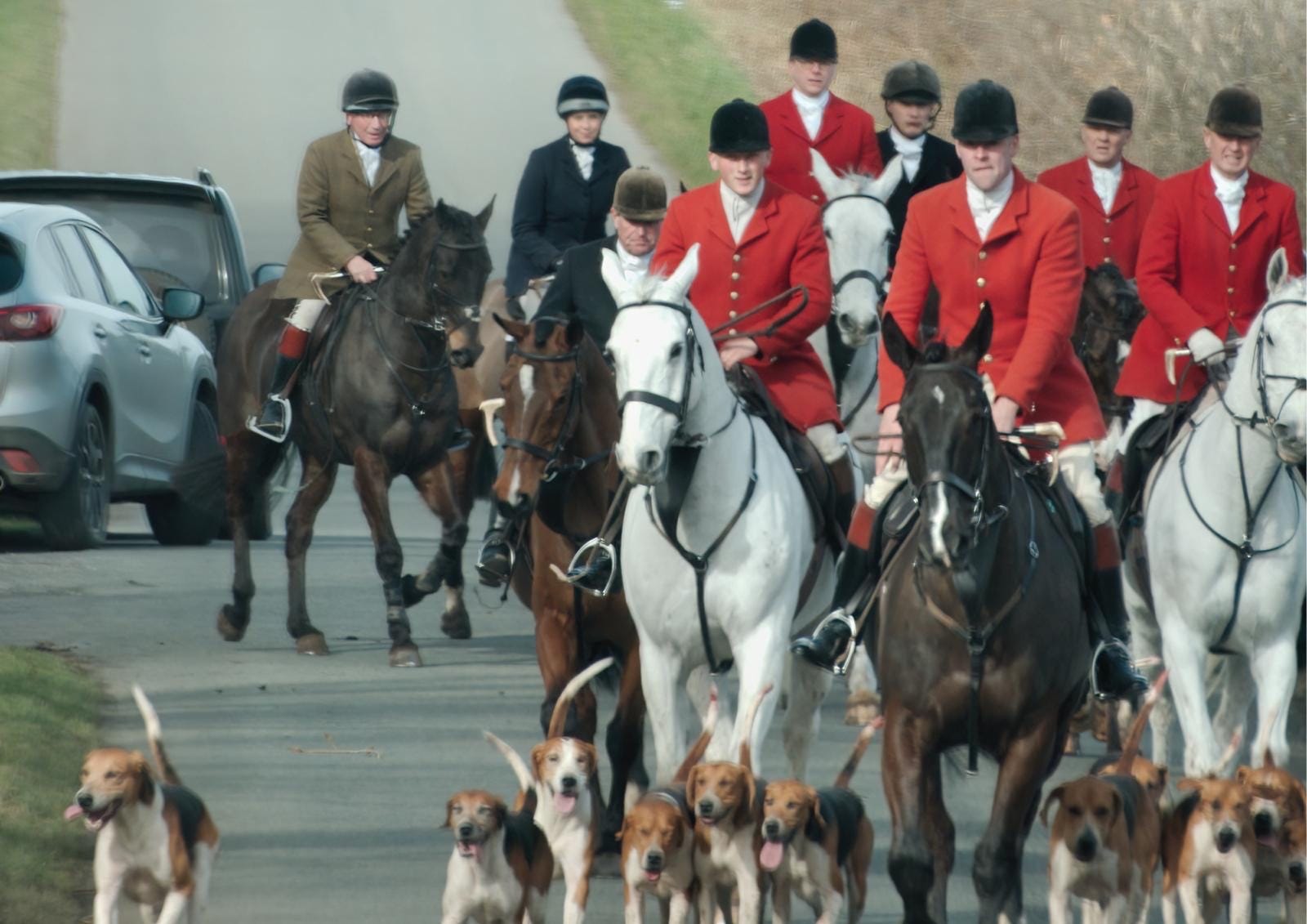Are Community Protection Warnings worth the paper they're written on?As more hunts are given CPWs we ask if they make any difference to their terrible behaviourWest Mercia Police has issued four hunts with Community Protection Warnings (CPWs). Protect the Wild takes a look at what this means, and whether it will protect wildlife where the Hunting Act has failed.On 9 December, Action Against Foxhunting (AAF) announced that the North Shropshire Hunt, South Shropshire Hunt, Wynnstay Hunt and the United Pack had all been issued with CPWs in October. A CPW is the first of three stages that the police can take in their process of issuing a Community Protection Notice (CPN). The first stage is to issue a formal warning to an individual or group, outlining what action they need to take or stop so that they aren’t sanctioned with a CPN. The second stage is to issue a CPN - which has replaced the more famous Antisocial Behaviour Order, or ASBO - if the conditions of the warning are broken. The final stage is for the police to take action if the CPN isn’t complied with. AAF outlined the conditions of the CPWs, saying:
The group continued:
'A joint venture between locals and the police'Protect the Wild's readers will know all too well that the Hunting Act's loopholes ensure that hunters can get around the law. Meanwhile, the Road Traffic Act even has an exemption for the use of dogs on roads by hunts. So, are Community Protection Warnings and Notices useful for enforcing punishment where existing legislation is failing? We spoke to Cheshire (Borderland) Monitors' Lesley Martin to ask her opinion. She keeps a close eye on the notorious Wynnstay, a violent and aggressive hunt which has been issued with a CPW by West Mercia Police. Martin said that the warning has made very little difference so far, and goes on to highlight how locals can play a part to ensure that further action can be taken by the police. She said:
Martin explained that to enforce the CPW and issue a subsequent CPN, it is local people who need to submit complaints to police forces. Reports and footage from Cheshire Monitors are not useful because for complaints to count, they need to come from community members. She explained that last time she monitored the Wynnstay, locals told the monitors about four incidents, but that none had been reported to the police. Martin continued:
Other hunts have been issued with CPWs, with varying effect. Some weeks ago, North Dorset Sabs reported that the notorious Blackmore and Sparkford Vale Hunt had received a CPW. But Dorset Hunt Monitors argue that this is not enough. The monitors stated:
Maybe the key is for locals to take Cheshire (Borderland) Monitors' Lesley Martin's advice and report every crime, getting those incident numbers. The benefits of CPNsSo, even if a community does successfully secure a CPN, is this even useful in preventing hunters from flouting the law? We asked Hull Wildlife Protectors their opinion. Volunteer Charlotte Smith thinks the issuance of CPNs is extremely beneficial. She explained to us:
Of course, a CPN is only as effective as the police force imposing it. An example of terrible policing is that of Warwickshire Police, which has been subject to intense scrutiny by the public for its blatant bias towards the Warwickshire Hunt. The force initially imposed a CPN on the hunt for causing road chaos, but then quickly dropped it and replaced it with a secret ‘protocol’ which it had negotiated with the hunt itself. The public lost trust in Warwickshire Police over the CPN scandal. Change the law!It is obvious that if hunting legislation was effective, CPWs and CPNs would not be needed to police hunts. In its manifesto, Labour promised that it would strengthen the Hunting Act, getting rid of loopholes that are currently being exploited. The widespread issuance of CPWs and CPNs on hunts should be yet another reminder to politicians that hunts are out of control and need to be stopped once and for all.
|




No comments:
Post a Comment